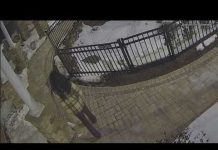
Russian families are burying sealed coffins of unknown soldiers while authorities threaten legal action if they dare to look inside—some later discover their supposedly dead relatives are still alive.
Key Takeaways
- Russian authorities prohibit families from opening sealed coffins of soldiers reportedly killed in Ukraine, threatening legal consequences despite no actual law against it.
- Multiple cases have emerged where families buried the wrong bodies, with some soldiers contacting their relatives weeks after their own funerals.
- Officials refuse to provide identification photos, personal belongings, or allow DNA testing, deepening the uncertainty for grieving families.
- An estimated 250,000 Russian soldiers have been killed in Ukraine since the war began, with the Kremlin’s narrative shifting from denial to portraying soldiers as volunteers.
- Families face intimidation and silence when questioning official accounts, with independent journalists investigating these deaths facing threats and violence.
The Sealed Coffin Mystery
In a remote Russian village, the family of 20-year-old paratrooper Sergei Andrianov received his body with a death certificate listing “blast trauma” as the cause of death—no details on where or how he died. This scenario has played out thousands of times across Russia as the government maintains strict control over information about military casualties in Ukraine. Families receive sealed coffins with explicit warnings against opening them to verify the identity of their loved ones, leaving many to wonder who they’re actually burying.
“I was hoping there was a mistake. They took so long to bring him, I thought maybe he was wounded and they were treating him,” said Natasha, a Russian soldier’s relative.
Valeria Mikhailova’s experience exemplifies this disturbing pattern. When her husband Maksim was reportedly killed in Ukraine, officials delivered a sealed coffin and explicitly prohibited her from opening it. They provided no photographic evidence of the body and refused her request for DNA testing. The military claimed Maksim’s fellow soldiers had identified him, but she later discovered this was a lie—his unit had actually lost track of him completely.
The Living Dead: When Soldiers Return After Their Funerals
In one of the most shocking cases from Buryatia, a family received a coffin and death certificate for a soldier named Sergei K., held a funeral, and buried the remains—only to receive a phone call from him weeks later. He was alive and recovering in a hospital. A family in Yekaterinburg faced a similar situation, burying a stranger’s body by mistake before having to hold a second funeral when they discovered the truth. These incidents reveal the chaos and carelessness in Russia’s handling of war casualties.
“I often think, ‘Who did I bury?’ I don’t know,” said Valeria Mikhailova, wife of a reportedly deceased Russian soldier.
The Committee of Soldiers’ Mothers estimates at least 500 Russian soldiers have been killed in Ukraine, though independent studies suggest the true number may be closer to 250,000 since the war began. When families attempt to get answers about their loved ones, they often face callous dismissal from military officials. The pain of uncertainty is compounded by threats of legal action against those who question the official narrative.
The Kremlin’s Shifting Narrative
Russia’s official position on its military involvement in Ukraine has evolved dramatically over time. Initially, the Kremlin flatly denied sending troops to Ukraine, despite mounting evidence to the contrary. As the bodies continued to return home, state media pivoted to portraying the dead soldiers as patriotic volunteers motivated by kinship with Russian-speaking Ukrainians. This narrative shift serves President Putin’s domestic political agenda, where the annexation of Crimea and involvement in Ukraine have actually boosted his approval ratings despite international condemnation.
“Without question, Putin is using Ukraine to achieve his domestic political goals,” said Victor Shenderovich, Russian political commentator .
Independent journalists and politicians who attempt to investigate these deaths have faced threats and violence. The atmosphere of fear has silenced many families, who are reluctant to speak out about their experiences. When they do seek answers, they’re often met with dismissive responses. As one exasperated officer told a family seeking information: “Quit calling. They’ll give you 100,000 rubles ($1,850) — more than enough to drink and remember him. What more do you want?”
Hope Against Hope
Despite the grim circumstances, many families cling to hope that their loved ones might still be alive. Valentina Mikhailova, mother of the supposedly deceased Maksim, points to inconsistencies in the official account of her son’s death. The family received only a handwritten note claiming he died in an explosion, with no personal belongings returned. These discrepancies, coupled with known cases of misidentification, fuel her belief that he could still be alive somewhere in Ukraine.
“Everyone around has lied about it. The military enlistment office told us that his body… was identified by his fellow soldiers and his commander, and that there was no need for a DNA test. Then, it turned out that his fellow soldiers had lost him altogether and there was no identification at all,” said Valentina Mikhailova, mother of a reportedly deceased Russian soldier
The Mikhailov family is now pursuing legal action to obtain a court order for DNA testing of the remains they buried. Their story represents thousands of Russian families caught between grief and uncertainty, unable to properly mourn loved ones because they cannot confirm who lies in the graves they visit. This systematic denial of closure for families of fallen soldiers reveals the human cost of Russia’s information control tactics—a cost paid not on the battlefield, but in the broken hearts of those left behind.




